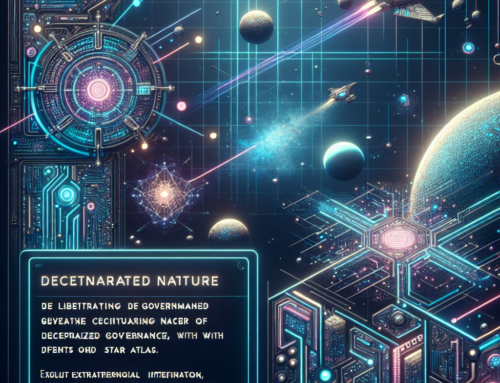Neoliberalism in Star Atlas: A Titan Analytics Insight

Neoliberalism in Star Atlas: A Titan Analytics Insight
Neoliberalism is a complex term often used in the context of economics and politics, but its implications can also be observed in digital ecosystems like Star Atlas, an expansive galaxy-themed game built on the Solana blockchain. At Titan Analytics, we explore how the principles of neoliberalism are reflected within Star Atlas, shaping the gameplay experience and the broader economic environment.
Understanding Neoliberalism
At its core, neoliberalism advocates for free-market capitalism, minimal government intervention, and the promotion of individual entrepreneurship. This economic philosophy underscores the belief that free markets can drive innovation and prosperity when left to operate without restrictions.
Neoliberal Principles in Star Atlas
1. Decentralization and Individual Empowerment:
Star Atlas thrives in a decentralized environment where players can explore, trade, and engage with the game’s ecosystem independently. This echoes the neoliberal ideal of individual entrepreneurship. Players are empowered to create their own paths within the game, whether through resource management, trade, or exploration. The emphasis on individual agency not only enhances user experience but also fosters a vibrant community where players can innovate and strategize.
2. Market-Driven Economy:
The in-game economy of Star Atlas is largely market-driven, where supply and demand dictate prices and resource availability. Neoliberalism promotes minimal intervention in markets, allowing natural economic forces to thrive. In Star Atlas, players can buy, sell, and trade assets like ships and resources, akin to a real-world free market where success is influenced by strategic choices and market forces.
3. Competition and Innovation:
Neoliberalism encourages competition as a means to stimulate innovation. Star Atlas embodies this principle through its competitive landscape, where players and factions vie for resources, territory, and dominance. The competition drives technological advancements within the game, resulting in improved strategies and richer player experiences. As players innovate to gain an upper hand, the overall quality of gameplay improves.
Challenges of Neoliberalism in Star Atlas
While neoliberal principles foster a robust gaming environment, they also present certain challenges. The emphasis on competition can sometimes lead to disparity in resource access, where a few players dominate the economy. This mirrors real-world concerns about wealth inequality often associated with neoliberal policies. Thus, the challenge lies in balancing competitive gameplay with equitable opportunities for all participants.
Conclusion
In summary, Star Atlas emerges as an intriguing case study of neoliberalism in action. Its decentralized, market-driven economy promotes individual empowerment and competition, echoing the fundamental tenets of the neoliberal philosophy. As players navigate this complex universe, they experience first-hand the interplay between individual agency and market dynamics.
For those keen to delve deeper into the economic intricacies of Star Atlas, we invite you to visit our data modules at Titan Analytics. If you have any questions or need further insights, feel free to reach out to us at Titan Analytics Contact. Explore within, and may your journey in Star Atlas be prosperous!




